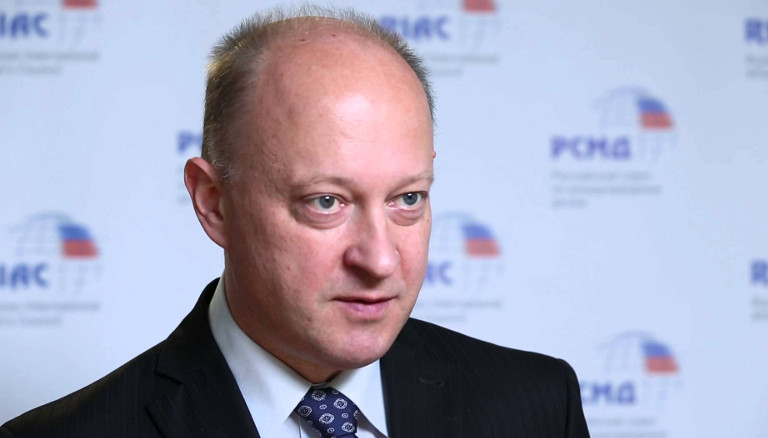26 Dec 2015

November 24th, 2015 became a turning point for the Russian-Turkish relations. One thing should be clear to everybody: a long optimistic chapter in the bilateral relationship is over, and we are entering a new, still very unclear and potentially very dangerous period.
If the Russian-Turkish cooperation was so great prior to November 24th, then why one single accident turned out to be sufficient to negatively change the whole fabric of the Russian – Turkish partnerships in various fields?
I would argue that the crisis between our two countries had been ripening for a long time, and the SU-24 grounding was only the last straw that broke the camel’s neck.
For many years, Russians and Turks were trying to convince each other that they could “agree to disagree” on many controversial and explosive political matters. The Russian – Turkish relations demonstrated a spectacular lack of the strategic depth – an evident deficit of the ability, courage and political will to look for and to find compromises and common denominators for the most fundamental problems pushing the two states apart from each other.
Today Turkey arguably feels more pain than Russia does. Grounding the Russian aircraft has not helped to protect the Syrian Turkmen population close to the Turkish border. If the idea was to enforce a no-fly zone over a part of the Syrian territory, it worked the other way round: today such a zone does exist, but under Russian control. Russian air attacks on trucks crossing the Syrian-Turkish border in both directions—on the basis that the traffic supports the so-called Islamic State – do not make things any easier for Ankara either.
Nonetheless, if any exalted politicians or opinion makers in Moscow believe that Russia can “punish” Turkey without a high price to pay, they are making a grave mistake. Ankara has many ways to make life harder for Moscow ranging from changing its energy import preferences to the Gulf to utilizing its influence over the numerous community of Crimean Tatar descendants in Turkey in ways detrimental to Russia’s interests. As for economic sanctions against Turkey, in the end of the day these sanctions are going to hurt both countries.
What both sides could do to start restoring the relationship? Before answering this question, we should ask ourselves another one: what can we not afford in the near future? First, we cannot restore mutual trust anytime soon. Second, we cannot realistically discuss any strategic reconciliation between the two countries or a Russian-Turkish Grand Bargain – in the absence of mutual trust and with the deficit of the strategic depth the idea of a mutual remission of sins by Putin and Erdogan looks ridiculous. Third, we should be fully aware of the fact that the spiral of hostility and mutual animosity is spinning up, and it would take both sides a lot of energy and time stopping this negative momentum, not to mention reversing it.
Many proponents of better Russian-Turkish relations on both sides of the newly erected barricade argue that the only thing we can do now is to concentrate on non-state dimensions of the crippled relationship - trying to preserve and to expand human contacts, small business interaction, cultural links, joint NGO projects, education mobility, research partnerships and similar ‘uncontroversial’ forms of bilateral engagement. In my view, this is an important goal to pursue, but we should not overestimate our ability to set a firewall between state and non-state dimensions of the Russian-Turkish relations. In our two countries state traditionally exercises a lot of influence over public opinion, civil society, media, cultural and educational institutions.
The most critical bone of contention between Russia and Turkey today is the future of Syria. If we agree on the future of Syria, it would be much easier to move ahead on other burning issues.
As for the longer term bilateral Russian – Turkish relations, a lot will depend on whether both sides can learn their lessons from the current crisis and whether the dialogue between Moscow and Ankara can gain a new strategic depth. My modest suggestion would be to set a high level second track channel of communications to compare long term interests, priorities, threats and challenges that the two counties are likely to be focused on beyond the time frameworks of their current political cycles.
The strategic depth must embrace both the past and the future. The past should not be forgotten in order to maintain our core identities and to learn from our mistakes. But it is the future that has to inspire individuals and nations. The best days of the Russian-Turkish relations may well be ahead of us, not behind us.
Andrey Kortunov
RIAC Director General




19 декабря 2023 года Международный институт развития научного сотрудничества «МИ ...
14 и 15 ноября в отеле «Националь» в Москве проходит III Международный форум «СМ ...
30 октября 2023 Центр научно-аналитической информации Института востоковедения Р ...
С 18 по 20 октября в Казани пройдет шестой международный «Медиафорум-2023: свобо ...
10-11 октября в Белграде прошла IX Международная встреча интеллектуалов на тему ...
